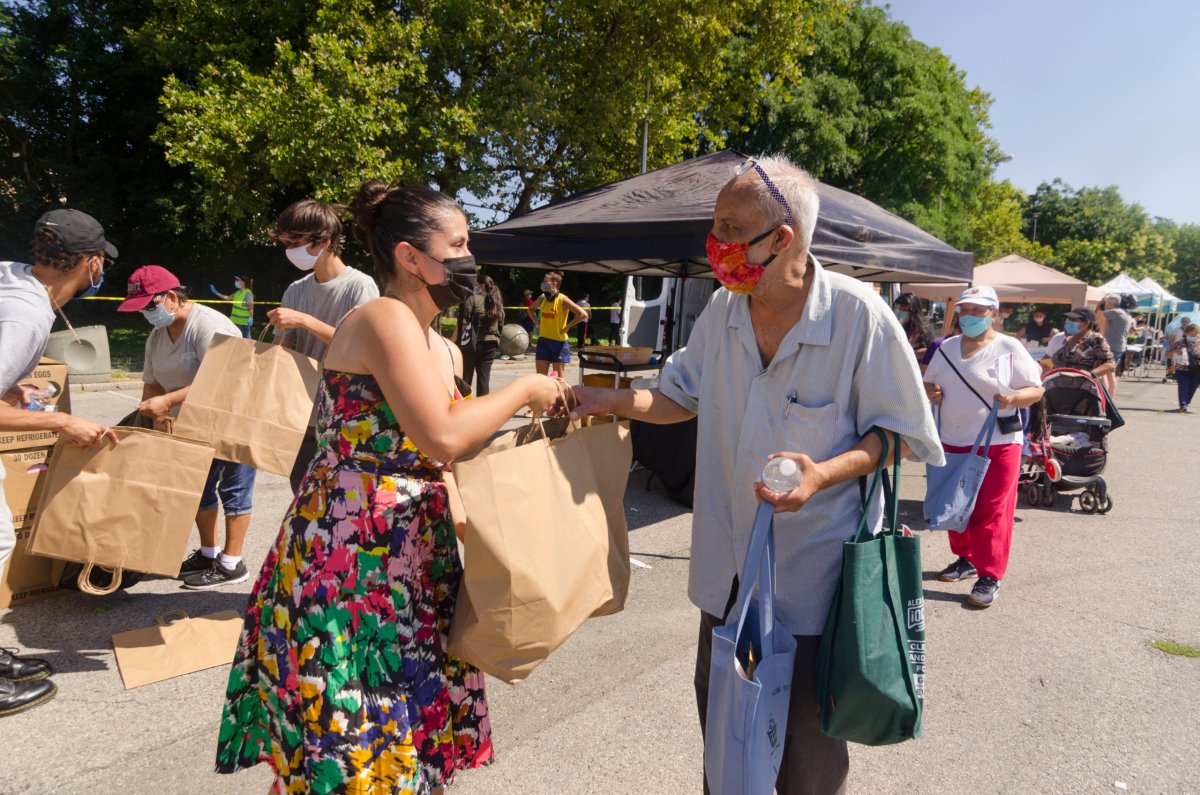State Senator Jessica Ramos hosted her 14th consecutive food distribution event, which marks the last of her program during the COVID-19 pandemic, at New York Hall of Science’s parking lot on Aug. 1.
Ramos, who represents Jackson Heights, East Elmhurst, Corona, and parts of Woodside and Astoria — some of Queens’ hardest hit neighborhoods during the pandemic — has been working with community organizations and state partners to address her constituents’ food insecurity for months.
“Today was the culmination of our food distribution program,” Ramos told QNS. “We need to reopen our office to the public because, unfortunately, [we’ve had] cases of evictions, lots of questions about unemployment and stimulus checks, and we need to be able to serve our community the best way we can.”
The Hall of Science’s parking lot offered ample space for the food distribution line, along with free COVID-19 diagnostic testing, antibody testing and cardiovascular services. The Census team and Make the Road NY were also on site to help individuals fill out the Census.
Ramos’ team has served up to 2,000 people a day during her weekly fresh produce and hot meals distribution. Over the past month, they’ve distributed nearly 400,000 pounds of fresh produce, meat and dairy to over 13,000 New Yorkers. Early on in the state’s lockdown, the elected worked with farms upstate that had surplus produce in order to bring it downstate for families in need.
“We need them to save money so they can penny pinch, but it’s also about providing them with food that is healthy and hopefully will contribute to a better, healthier lifestyle given that we’re trying to fend off a second wave [and] we were already the hardest hit,” she said. “So keeping our people healthy is really important.”
Additionally, she’s provided more than 6,000 hot meals prepared fresh by about three dozen local street vendors thanks to a partnership with the Street Vendor Project.
Ramos has previously spoken about how people in her district haven’t had enough help from the city’s various food programs throughout the pandemic. At the same time, more than a third of the city’s food pantries have closed in the last few months.
“It’s hard because I think everybody’s trying to do as much as they can with what they have,” she said. “But the need is so great, the situation is so dire for working class people and especially those workers who don’t qualify for any state or federal benefits. Those are thousands of New Yorkers that don’t qualify for unemployment, didn’t get a stimulus check, don’t qualify for the Pandemic Unemployment Assistance program — these are the excluded workers that we always fight for and why I’m talking about how billionaires need to pay their fair share.”
Ramos said they will continue supporting local food pantries and making sure new community fridges are stocked while they return to work.
“We will be supporting all of the wonderful neighbors who have been developing their own mutual aid programs and community based organizations that are doing good work,” she added. “We’re going to have their back while we get up back up and running in a way where we can really help people who are suffering by not being able to pay rent or find a job.”





































